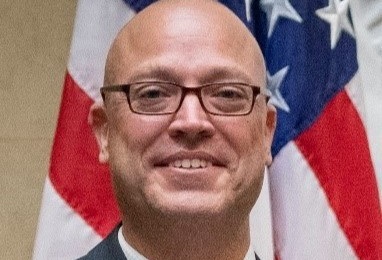
Lawmakers seem to agree the Presidential Transition Act could use some work
Rep. Gerry Connolly (D-Va.), chairman of the Oversight and Reform Subcommittee on Government Operations, introduced new legislation designed to help incoming ad...
There’s little members of Congress seem to agree on when it comes to the events of the current presidential transition.
But they might just agree that the 57-year-old Presidential Transition Act isn’t as clear as they’d like it to be, particularly in detailing specific criteria that the General Services Administration should use to formally ascertain the winner of a presidential election.
“We’re not going to agree on some politics, a lot of politics, surrounding this issue, but I do think that Mr. [Jody] Hice (R-Ga.) and I, others on the subcommittee and the full committee, can try to find common ground though in dealing with some of the crevices that have been exposed that need to be fixed in law,” Rep. Gerry Connolly (D-Va.), chairman of the Oversight and Reform Subcommittee on Government Operations, said at a hearing Thursday on presidential transitions.
Hice, the ranking member of the government operations subcommittee, said he too was willing to discuss some of the ambiguities of the Presidential Transition Act.
The exchange between Connolly and Hice was one of the few nonpolitical ones of the hearing, with members discussing everything from their displeasure with mail-in voting to their frustrations with the timing of Murphy’s formal ascertainment.
Still, some members found time to discuss possible improvements they could make to the presidential transition process.
Connolly referenced GSA Administrator Emily Murphy’s formal ascertainment letter to President-elect Joe Biden, where she said current law failed to define the procedures or standards for the ascertainment process.
She suggested Congress consider amending the Presidential Transition Act.
“We do need to clarify the standard for post-election transition support,” Max Stier, president and CEO of the Partnership for Public Service, told the subcommittee. “It should be a ministerial decision, it should be clearer and it should be a low bar. This is not about deciding who’s president. This is about deciding whether someone is going to get the information they need and the help they need to be ready to govern if they are in charge on Jan. 20.”
Congress could also allow both transition teams to conduct more work before the election, which Stier said would eliminate some of the pressure on formal GSA ascertainment.
An attempt to shed more light on ‘midnight regulations’
Connolly said he would introduce new legislation designed to help new administrations better account for “midnight regulations,” the last-minute policy changes that many outgoing administrations promulgate in the final days of their terms.
The bill, known as the Midnight Regulations Review Act, would call on the Government Accountability Office to identify and publish a list of regulations that the outgoing administration releases during the lame-duck session.
Full committee Chairman Carolyn Maloney (D-N.Y.), along with Reps. Raja Krishnamoorthi (D-Ill.) and Jackie Speier (D-Calif.), are co-sponsors.
Connolly said he based his legislation off a bill from Senate Homeland Security and Governmental Affairs Committee Chairman Ron Johnson (R-Wis.) and Sen. Tom Carper (D-Del.), which also calls on GAO to examine the impacts of midnight regulations.
Incoming administrations have an easier time of overturning last-minute regulations they don’t like if the new rules are still in the proposed stage of the formal rulemaking process, said Lisa Brown, who served as the co-director of agency review for the Obama transition.
Final rules, however, are much more difficult to repeal, and new administrations must go through the Congressional Review Act or start the rulemaking process over entirely to overturn them, she added.
Beyond the procedurals new administrations must take, overturning “midnight regulations” in the early days of a presidency can also create an unfavorable tone.
“It starts a new administration on a negative note, particularly if there’s a party change,” said Martha Kumar, director of the non-profit White House Transition Project. “They then have to spend their time, rather than working on their priorities, making sure that they address the rules that have been left behind.”
Executive orders, of course, are easier to repeal, and the Partnership for Public Service is actively urging the incoming administration to consider overturning one EO in particular.
The Partnership has been adamant in recent weeks in calling attention to President Donald Trump’s Schedule F executive order, which allows agencies to reclassify career federal employees in certain policy-making positions to a new class of quasi-political appointees.
“It’s really a fundamental attack on the core notion that we need merit-system-based professionals to deal with the really difficult problems that we face as a nation,” Stier said. “It’s frightening.”
An incoming Biden administration may repeal the Schedule F executive order, but it’s unclear if and when the president-elect might overturn it.
It’s also unclear whether the Trump administration will use the order between now and Jan. 20, but at least one agency has completed an initial step in the reclassification process.
Stier and the leaders of several other good government groups are concerned the Trump administration will use the order now to formally reclassify career federal employees. Employees would lose their due process rights in the process, and they could be fired at will.
“The damage that could be done between now and the next administration is really serious,” Stier said. “To the extent that this could be stopped, it would be to the people’s benefit. Ultimately it will lead to incredible inefficiencies and incredible harm to the public and to public servants.”
Copyright © 2024 Federal News Network. All rights reserved. This website is not intended for users located within the European Economic Area.
Nicole Ogrysko is a reporter for Federal News Network focusing on the federal workforce and federal pay and benefits.
Follow @nogryskoWFED





